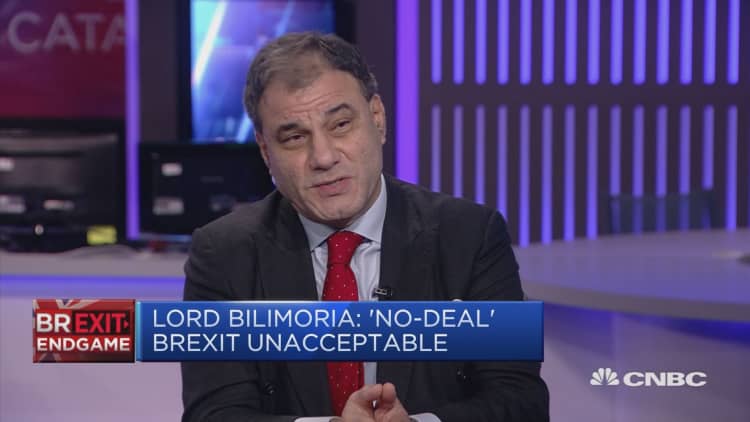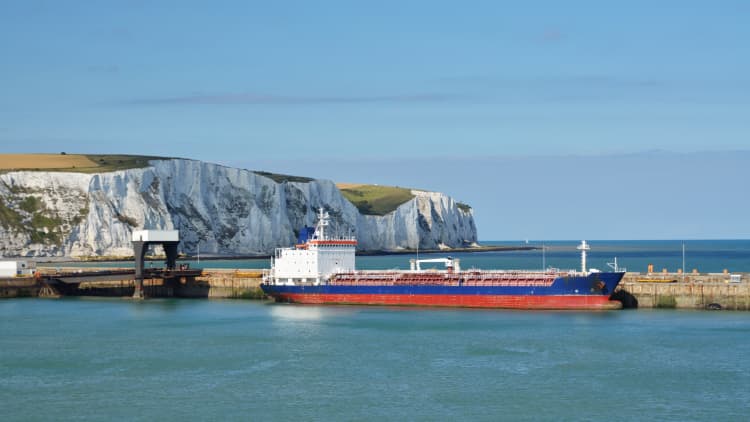U.K. Prime Minister Theresa May's plans for Brexit have come under significant fire in recent months, but experts and political analysts have talked favorably of her proposals and believe they provide benefits for both sides of the negotiating table.
The Withdrawal Agreement — a 585-page document that outlines how the U.K. will leave the EU in March — is causing division among society and lawmakers. A YouGov poll out Friday showed 27 percent of people surveyed supported the deal, 45 percent opposed it and 28 percent said they didn't know. This division is causing many analysts to predict that the deal will be voted down on Tuesday next week.
Nonetheless, Richard Tauwhare, a senior director at the law firm Dechert, believes there are some major benefits from the deal.
"The agreement secures the rights of U.K. citizens in the EU, an agreed financial settlement, a backstop that (if used) would apply to the whole of the U.K. rather than only to Northern Ireland," he told CNBC via email.
Tauwhare mentioned other benefits, such as: "An extendable, time-limited transition period providing stability during the negotiation of U.K.-EU free trade and political/security agreements; and of U.K. free trade arrangements with third countries."
Everyone is waiting for the 11th (of December) to know what is going to happen.Simon UsherwoordDeputy director of The UK in a Changing Europe
Under the exit agreement, the U.K. will enter a transition phase from the beginning of the official departure on March 29, until the end of 2020. During that time, the U.K. will still pay into the EU budget and goods and citizens will continue to move freely across the English Channel. However, the U.K. will not have any say in meetings regarding new European policies.
During the transition period, U.K. and EU negotiators will outline a new relationship, which includes new trade arrangements.
"The (exit) deal is good for both sides, if they want to negotiate a future relationship," Simon Usherwood, deputy director of the think tank The UK in a Changing Europe, told CNBC over the phone. He added that May's plan is not popular, but there isn't a clear alternative either.
Transition period
According to the Withdrawal Agreement, the transition period can be extended "up to one or two years" to allow extra negotiations on the future relationship, which will include new trade arrangements.
Usherwood told CNBC that it is "doubtful" that both the U.K. and the EU will reach a compromise during that period. Firstly, because the U.K. has not decided what it wants from that future relationship yet, and secondly, because both sides have the same rules and deviating from that could be complicated.

Trade policy is a critical area for the prime minister. For now, the U.K. is not able to negotiate trade deals with other countries while still a member of the EU. However, during the transition period, the U.K. will be able to prepare deals with other nations to come into force as soon as that transition phase ends.
The issue here is that third-party countries will be reluctant to close deals with the U.K. while it's still negotiating its trade arrangements with the EU, Richard Whitman, the associate fellow at Chatham House, told CNBC over the phone. This is because third-party countries will need to know how aligned the U.K. will be with the EU when putting proposals on the table.
EU benefits
From a European perspective, Tauwhare from Dechert, said the deal meets the EU's objectives. These include securing the status of EU citizens in the U.K., settling the U.K.'s financial obligations, ensuring against a hard border in Ireland and preserving the integrity of the EU's single market (the common area where European goods and people move freely).
However, Whitman acknowledged that the EU is losing from the very starting point of the Brexit process, given that one of its members is leaving the bloc — an unprecedented move in European history.

The withdrawal deal "kicks the can down the road … In the meantime, the EU benefits because the U.K. will continue to pay into the European budget," Whitman said. He added that effectively the exit agreement gives U.K. politicians more time to figure out how they want to collaborate with the European Union in the future.
"Everyone is waiting for the 11th to know what is going to happen," Usherwood said.


